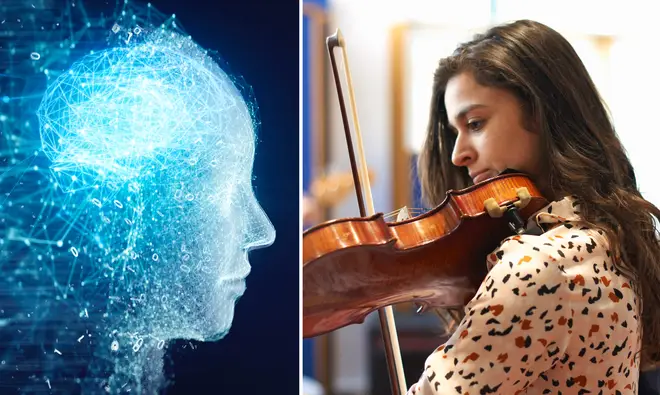On Air Now
Classic FM Breakfast with Dan Walker 6:30am - 9am
27 January 2021, 13:37 | Updated: 28 January 2021, 15:58

Picking up a musical instrument gives you a higher IQ, according to a new study of more than 4,600 volunteers.
New research has claimed that learning to play a musical instrument increases intelligence by 10 percent.
In a six-month study co-ordinated by DIYS.com, the world’s largest DIY community, 4,694 volunteers chose a new hobby to take up during coronavirus lockdown. Among the chosen hobbies were knitting, exercising and learning an instrument.
The volunteers then took an IQ test, before being grouped according to their chosen activity. After six months, they were retested, and researchers indexed and averaged their scores.
The highest IQ increase came from the music-makers, averaging a score increase of 9.71 percent.
Before they took up an instrument, the new musicians’ average IQ score was 103. When they were tested again, six months later, it had increased to 113.
Read more: Musicians who train from a young age have more ‘connected’ brains, study finds >

This is what 10 years piano practice looks like in 5 minutes
Scores for IQ tests, which are used to measure various cognitive reasoning skills, average around 100 in general.
Music-making trumped other hobbies including knitting, which had an average score increase of 9.68 percent, exercising (7.37 percent) and reading (7.07 percent).
According to the study, the most popular instrument was the guitar, with 31 percent of volunteers choosing to learn it.
Read more: Can we guess your IQ, based on your taste in music? >
The cognitive impact of playing an instrument has been widely studied. A 2014 Ted Talk delivered by brain development and music learning researcher Dr. Anita Collins, which has been viewed over 10 million times, explains why “fireworks” go off in musicians’ brains when they play.
Collins explains that when a musician plays an instrument, neuroscientists have seen multiple areas of the brain “light up” as it processes different information in “intricate, interrelated and astonishingly fast sequences”.
“Playing music is the brain’s equivalent of a full-body workout,” Collins adds.
Read more: Brains of jazz and classical musicians work differently, study reveals >

How would you improve music education?
Read more: Study finds Beethoven’s Moonlight Sonata most popular music to fall asleep to >
A more recent study, led by experts at the Stanford University School of Medicine, found that musicians who started playing an instrument at a young age have more ‘connected’ brains.
Using a sample pool of 153 musicians and non-musicians, researchers found a significant difference in brain structure in the musicians.
More so, the team found that those who had starting playing at a young age had stronger brain connections than those who only started in later years.
We’ve opened voting for the Classic FM Hall of Fame 2021! Tell us your favourite music and you could win a smart speaker, iPad and luxury hamper.